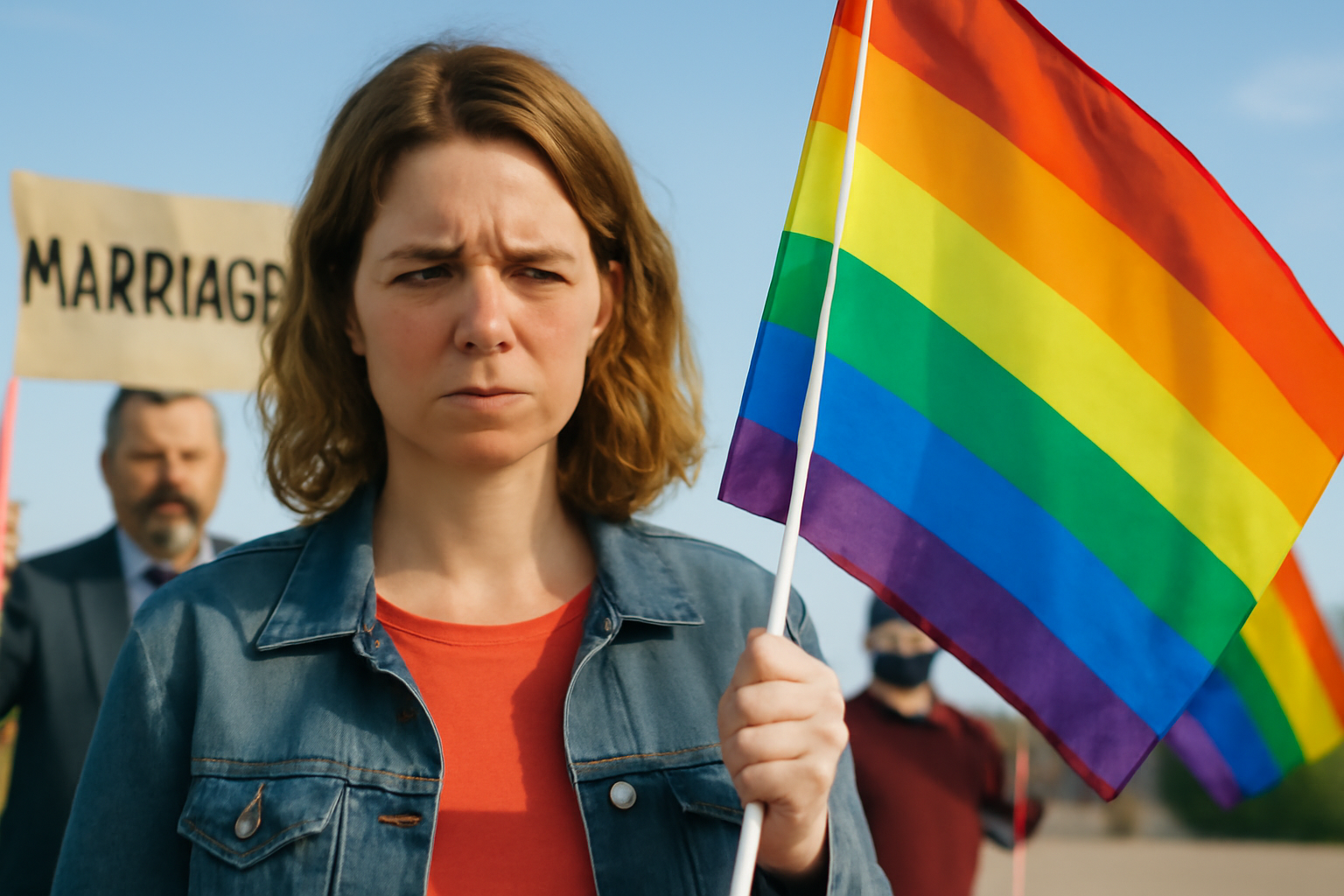
The recent move by some Idaho lawmakers to introduce a resolution aiming to repeal marriage equality has stirred significant concern and conversation among LGBTQ+ advocates and allies. This development is seen by many as a harbinger of potential challenges to LGBTQ+ rights on a broader scale throughout the United States.
A Resolution Rooted in Controversy
The resolution, proposed by the Idaho Republican Party, explicitly calls for the state's lawmakers to take action to trigger a constitutional amendment that would define marriage exclusively as a union between one man and one woman. This proposal is not only a stark reversal of the progress made since the landmark Supreme Court ruling in 2015 that legalized same-sex marriage nationwide but also a direct affront to the values of inclusivity and equality that many Americans hold dear.
Idaho's resolution, although currently symbolic and lacking legislative power, is perceived as a strategic move to ignite a broader debate about marriage equality. This action could potentially set the stage for similar initiatives in other conservative states, thereby threatening to undermine the marriage rights that same-sex couples currently enjoy.
The Broader Implications for LGBTQ+ Rights
Advocates warn that such resolutions are more than just political posturing. They represent a concerted effort to challenge and possibly overturn established rights, thereby creating a climate of uncertainty and fear among LGBTQ+ individuals and their families. The symbolic nature of Idaho's resolution belies its power to influence public opinion and policy-making at both state and national levels.
Observers note that the resolution could embolden other states to propose similar measures, which, although unlikely to succeed in the immediate future, could gradually erode the legal protections that LGBTQ+ individuals currently have. This potential domino effect is a source of significant concern among civil rights organizations, which are preparing to mobilize and defend marriage equality and other LGBTQ+ rights.
Furthermore, the resolution comes at a time when the U.S. Supreme Court is undergoing significant changes, with new appointments that could shift the balance of judicial opinion on issues relating to LGBTQ+ rights. This adds an additional layer of complexity and concern for those who worry that the hard-won gains of recent years could be at risk.
Community Response and Mobilization
The LGBTQ+ community, along with its allies, has been quick to respond to Idaho's resolution. Rallies, petitions, and social media campaigns have been organized to raise awareness and oppose any attempts to roll back marriage equality. Activists stress the importance of staying vigilant and proactive in defending rights that were secured through years of struggle and advocacy.
National organizations have also stepped up, emphasizing the need for continued legal support and advocacy at all levels of government. There is a strong call for unity and action to ensure that the rights of all individuals to love and marry are protected and respected, regardless of gender or sexual orientation.
This situation underscores the importance of political engagement and the role that individuals and communities can play in shaping the social and legal landscape of the country. It serves as a reminder that the fight for equality is ongoing and that complacency is not an option.
Looking to the Future
While the resolution in Idaho has yet to translate into actionable policy, its introduction serves as a critical reminder of the fragility of progress and the importance of vigilance in preserving the rights of marginalized communities. The path forward will require continued advocacy, education, and coalition-building to counteract any efforts that seek to diminish the rights of LGBTQ+ individuals.
In conclusion, the situation in Idaho could very well be a precursor to a larger national debate on marriage equality and LGBTQ+ rights. It is essential for supporters of equality to remain informed, engaged, and ready to stand up for the rights that are at risk.
The future of marriage equality in the United States may be uncertain, but the commitment of those who believe in equality and justice remains unwavering. Together, through collective action and unwavering resolve, advocates can work towards ensuring that love and marriage are inclusive and accessible to all.
Related Posts
Triumphant Trans Woman Wins Legal Battle and Inspires Others to Stand Up for Their Rights
Breaking new ground: a landmark victory in transgender rights After battling in courtrooms and enduring endless challenges, Diana Portillo, a transgender woman, has secured a monumental victory in her decade-long fight against workplace discrimination. The result? Nearly $1 million awarded in a historic settlement. But this isn't just a win on paper—it represents a powerful precedent in combati [...]
Pride Month in Latin America: Protests and Demands for Equality
**Celebrating Pride and advocating LGBTQ+ rights in Latin America** Pride Month in Latin America was a lively mix where celebration met activism. Communities united, not just throwing a party but making a stand—demanding equality and pushing governments toward better protection and rights recognition. Throughout Latin America, pride events erupted in marches and cultural displays, each with a c [...]
Transgender Erasure Actions Implemented by National Park Service
```html Trump administration's impact on national park service and transgender recognition The Trump administration made notable moves in undermining transgender representation, which included directing agencies like National Park Service not include "T" and "Q" when they refered “LGBTQ” in any official communication. This move seems part a broader plan by this administration aimed at reducin [...]